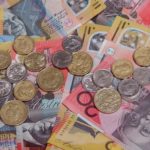US dollar was trading lower against the Japanese yen on Monday, following the release of mixed economic data out of Japan, while concerns over a possible US government shutdown triggered safe haven demand for the yen.
USD/JPY slipped to a session low at 97.67 at 0:50 GMT, after which consolidation followed at 97.97, falling 0.29% for the day. Support was likely to be received at September 29th low, 97.62, while resistance was to be met at September 27th high, 99.03.
It became clear that manufacturing activity in Japan expanded at the fastest pace since February 2011 in September. Markit Economics and JMMA said that Japanese manufacturing PMI advanced to 52.5 in September from a reading of 52.2 in August. With this result the index remained above the key level of 50.0, which separates expansion from contraction in activity for the seventh month in a row. The sub-index of new orders increased at the fastest rate since March in September, following the slight drop, registered in August. Prices of raw materials rose for the ninth consecutive month, despite that inflationary pressure in the country eased.
In addition, Japanese Ministry of Economy Trade and Industry reported that industrial production dropped 0.7% in August on a monthly basis, after it expanded 3.4% in July, while expectations pointed a lesser drop in August, 0.3%. The annual performance of the index showed a 0.2% decrease in August, confounding preliminary estimates of a 0.4% gain, after in July industrial output increased 1.8%.
Japanese retail sales rose 0.9% in August on a monthly basis and 1.1% on annual basis, after the 1.7% decrease in July on a monthly basis and the 0.3% drop on annual basis. Experts expectations were met.
Housing starts in Japan slowed down to a 8.8% increase in August annually, after the 12.0% in July, while preliminary estimates pointed that the indicator will advance 12.8%.
Meanwhile, on Saturday, the US House of Representatives passed legislation, that would delay the implementation of Obamacare, President Barack Obama’s health care package passed in 2010. There was a probability that 800 000 federal workers would be sent home on Tuesday, if the Congress fails to pass a stopgap spending bill, before funding expires tonight. “With the government shutdown coming into sight, what is happening in the market is risk aversion and the yen is rising,” said Kengo Suzuki, the chief currency strategist in Tokyo at Mizuho Securities Co., cited by Bloomberg. “Concerns that Congress would also fail to agree on raising the federal debt limit may accelerate risk aversion in the near-term.”
Elsewhere, the yen was advancing against the euro today, with EUR/JPY cross down 0.60% to trade at 132.04 at 7:05 GMT. GBP/JPY pair was losing 0.43% to trade at 157.94 at 7:08 GMT. US dollar has erased 3% during the past month, or the largest decline among the 10 developed-nation currencies, tracked by Bloomberg Correlation Weighted Indexes. The Japanese yen has depreciated 2.7%, while the euro has fallen 0.8% during the same period.





